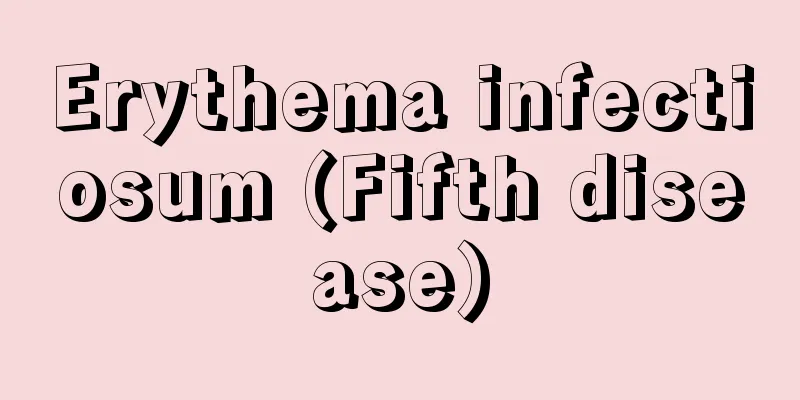Eight cruelties

|
The eight deadly crimes stipulated in the Taiho and Yoro Codes of Myoreiritsu. Based on the Tang Code, these eight crimes were created by consolidating the Ten Evils, including dishonesty and civil war, into eight items. (1) Treason (the crime of plotting to harm the nation, i.e. the Emperor), (2) Plotting high treason (the crime of plotting to damage the imperial tombs or the Imperial Palace), (3) Plotting rebellion (the crime of plotting civil war or foreign aggression), (4) Evil treason (the crime of plotting to beat to death grandparents or parents, killing uncles and uncles, mothers-in-law (father's sisters), etc.), and (5) Immoral behavior (the crime of killing three members of a family who are not punishable by death). ), (6) Great disrespect (crimes such as damaging a large shrine, stealing the Emperor's belongings, slandering the Emperor, and disobeying the orders of an Imperial messenger), (7) Unfilial piety (crimes such as suing or cursing or slandering one's grandparents or parents), and (8) Adultery (crimes such as a servant or a vassal killing one's master, killing the governor of one's home country or one's teacher, or remarrying during the mourning of one's husband). The crimes below "evil" are crimes that are regulated separately, but which particularly damage the teachings of the emperor. In summary, the eight cruelties were those that were important for maintaining order in the Ritsuryo state. Those who committed the eight cruelties lost the privileges of being pardoned or redeemed, and were not forgiven even under ordinary pardons. In addition, "plot" means an attempted conspiracy or a conspiracy by two or more people. [Ryosuke Ishii] Source: Shogakukan Encyclopedia Nipponica About Encyclopedia Nipponica Information | Legend |
|
大宝(たいほう)・養老(ようろう)二律の名例律(みょうれいりつ)に規定された八つの大罪。唐律を模し、その十悪のうち不睦(ふぼく)・内乱を整理し8項とした。(1)謀反(むへん)(「国家」すなわち天皇を害することを謀る罪)、(2)謀大逆(ぼうだいぎゃく)(山陵または皇居を毀(こぼ)つことを謀る罪)、(3)謀叛(むほん)(内乱または外患を謀る罪)、(4)悪逆(祖父母・父母を殴り殺そうと謀り、伯叔父(はくしゅくふ)・姑(こ)〈父の姉妹〉などを殺す罪)、(5)不道(一家の死罪にあたらない者3人を殺すなどの罪)、(6)大不敬(だいふきょう)(大社を毀ち、天皇の御物を盗み、天皇を誹謗(ひぼう)し、詔使(しょうし)の命に従わないなどの罪)、(7)不孝(ふきょう)(祖父母・父母を告訴し、または詛(のろ)い罵(ののし)るなどの罪)、(8)不義(帳内(ちょうない)・資人(しじん)が主人を殺し、本国の守または恩師などを殺し、夫の喪中に再婚するなどの罪)、である。悪逆以下は別に規定される犯罪のうち、とくに名教を損ずるものをあげたものである。総括すれば、律令(りつりょう)国家の秩序維持に重要なものを八虐と称したのである。八虐を犯した者は議請減(ぎしょうげん)・贖(しょく)の特典を失うし、また常赦(じょうしゃ)にあっても赦されなかった。なお、「謀る」は未遂または2人以上の共謀を意味する。 [石井良助] 出典 小学館 日本大百科全書(ニッポニカ)日本大百科全書(ニッポニカ)について 情報 | 凡例 |
>>: Vatican Museums - Vatican Museums (English name)
Recommend
Lancisi, GM (English spelling) LancisiGM
…During the Edo period, diseases accompanied by c...
Asatsuma Township
…Because it was located just west of Minoura, the...
Buddha's Foot Stone Song
It is also called "Bussokuseki no Uta" ...
Pinnotheridae
…General term for crabs in the family Pinnotherid...
Ezo Yotsume - Ezo Yotsume
An insect of the Lepidoptera family Saturniidae (i...
Zenritsukata - Zenritsukata
An institution established in the Muromachi Shogun...
Alternanthera ficoidea (English spelling)
… [Takabayashi Masatoshi]. … *Some of the termino...
Arabian Oil Co., Ltd. - Arabian Oil Co., Ltd.
Founded in 1958, it is Japan's first overseas ...
Claudianus, Claudius
[Birth] 370 [died] c. 404, a poet of the late Roma...
POD - P.O.D.
The Pocket Oxford Dictionary : The Oxford Pocket E...
Optical fiber - Hikari Fiber (English spelling) optical fiber
A waveguide used in optical communications. It me...
Ani [town] - Ani
A former town in Kitaakita County, located in the ...
Sir Charles Wheatstone
British physicist and inventor. Born in Glouceste...
People's China
…Published by the People's China Magazine Com...
"Kawasumi Taikoki" - I want to dodge
…Collected in the Revised Collection of Historica...









